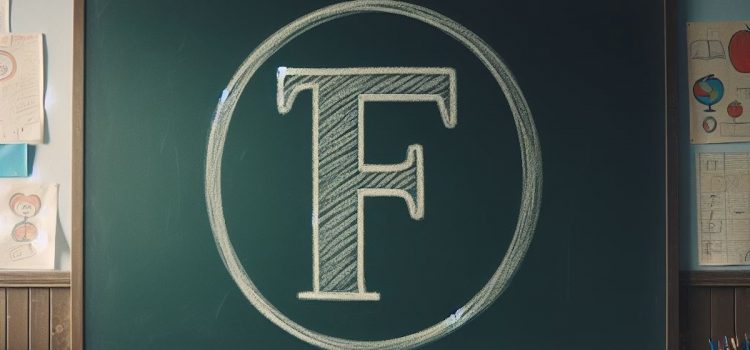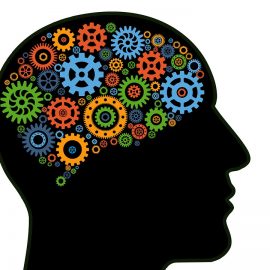
What’s wrong with the education system? Why is it failing to truly educate students?
In The End of Average, Todd Rose says that judging individuals in comparison to the average has caused damage to the modern education system. Rather than give each student what they individually need to learn the most, we give them a standardized experience that forces them to conform or fail.
Let’s discuss three ways that schools fail to treat students as unique individuals, consequently limiting their potential.
Failure #1: Schools Are Designed to Find Intelligence—Not Create It
What’s wrong with the education system? First, Rose argues that schools fail to nurture students as individuals because they were designed to achieve an entirely different purpose: sorting students. Rather than educate each student to help them reach their full potential, as it’s ostensibly supposed to do, our education system is designed to identify and support “gifted” students. That is, it allocates better opportunities to children with the preexisting potential to learn how to solve complex problems. In turn, the system provides less support to those without such potential.
This model has its roots in the beginning of the 20th century, when early American factories needed to identify capable students who would eventually become factory managers. It quickly spread to industrialized nations around the world.
Rose explains that this education system is supposed to benefit society by channeling the most gifted students into the best, most prestigious schools. Eventually, these students end up in the most important jobs, where they can do the most good for society.
To accomplish this, this education system judges how talented each student is by comparing them to the average student: Schools teach the same fixed curriculum to all students and conduct standardized tests to measure which students are best able to learn that curriculum. In the process, students who score below average end up at a disadvantage when trying to get into good schools and high-skill jobs.
Why Standardized Education Is Bad at Sorting Intelligence
Rose believes that our system keeps the best education and jobs away from those who lack academic success. In theory, this downside is balanced out by the system’s positive impact on society—everyone is better off if society’s important jobs are filled by the most talented people. However, Rose also contends that the system doesn’t accomplish this purpose very well.
According to Rose, our education system is a deeply flawed sorting mechanism because it’s founded on the false assumption that “general intelligence” exists. We use standardized tests because we assume that students who are better at quickly solving math problems or reasoning through logic puzzles are generally “smarter” than others. In other words, we think they’ll be better at solving all problems than their less “gifted” counterparts. Instead of judging students based on individual skills, we average out their various skills into one-dimensional scores that supposedly reflect their general intelligence.
However, research shows that such scores of general intelligence are completely inaccurate. Rose argues that if you ever judge someone as “generally smart,” you’re probably mistaken. That’s because someone who’s good at one intellectual task (for instance, analyzing literature) is no more likely than anyone else to be good at another intellectual task (say, interpreting statistics). For this reason, a student’s standardized test scores or grade point average don’t reliably predict their performance at other tasks, or in their future career.
Thus, our educational system only gives the best opportunities to students who are good at particular narrow skills, such as standardized testing, and it needlessly disadvantages students who lack these narrow skills.
Rose notes that this system isn’t totally unsuccessful at sorting. A high-scoring student is somewhat more likely to do well in college and the workforce than a low-scoring student. However, this benefit comes at a cost to individual students, who may lack opportunities because they don’t fit the mold. If a student is gifted in ways a standardized test can’t measure, the system incentivizes them to struggle to succeed in the same way as everyone else instead of nurturing the talents they have. This is not only demoralizing for individuals, but also damaging to society at large, as it leaves the labor pool full of underutilized talent.
Failure #2: Schools Force Students to Learn at a Fixed Pace
Second, according to Rose, our education system limits students’ potential by teaching all students a fixed curriculum at a fixed pace. This disadvantages those who need more time to effectively learn.
We assume that students who learn more quickly are “smarter” in general, and they’ll also excel at retaining skills and using them to solve problems. However, research suggests this is false: When given the freedom to progress through a curriculum at their own pace, almost any student can learn at a “gifted” level. Students benefit from spending more time on the ideas they struggle with and less time with those that come easily to them.
(Shortform note: Research supports Rose’s claim that self-paced learning is more reliable than fixed-pace learning. However, researchers have found that this strategy is rare—one study of self-paced learners found that less than half of their subjects dedicated more time to difficult content. Why? The authors of this study theorize that their learners simply didn’t know how to consciously apply this strategy. Thus, if schools want to give equal opportunities to students who need more time to learn, they must teach students how to identify difficult material and intentionally spend more time on it.)
Failure #3: Schools Ignore the Context of Students’ Behavior
The third way that our education system limits students’ potential is by falsely believing their personalities to be fixed, argues Rose. When faced with a “bad student,” schools often assume they can’t change the student’s fundamental nature, so they label them a lost cause.However, this approach is based on a misunderstanding of human personality. Contrary to popular belief, personality is context-dependent: People behave differently in different situations. No one is intrinsically a bad student; they’re just not in a learning environment that fits them as an individual.
Furthermore, Rose notes that, although personality is context-dependent, it remains fixed across the same context. In other words, people behave consistently when they repeatedly face the same situation. This means that, when students behave in a way that prevents them from learning—for instance, rebelling against teachers—you can permanently change their behavior by putting them in a new situation.
To resolve context-dependent issues, investigate what aspect of the environment is triggering harmful behavior and try to create a context without that trigger. For example, if a child in elementary school keeps distracting their classmates in the middle of an educational video, you might conclude that the student gets bored by videos and give them the option to read the same information in another room.







I agree with iam trying to go back to school, but they don’t have books for me studying my courses, I think it’s rude that I have go to lab and get my stuff downloaded thus 😅 😕 stupid & ridiculous